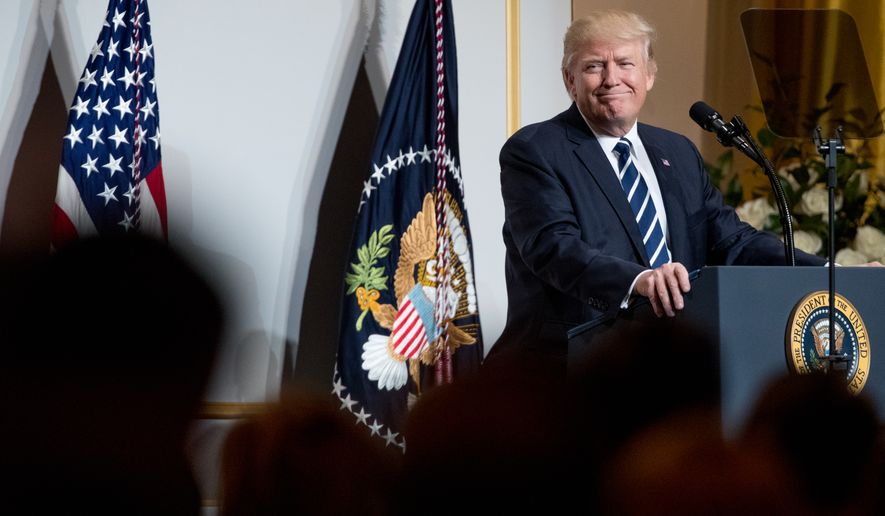OPINION:
Donald Trump’s greatest legacy (it’s not too soon to speculate) is likely to be the end of the dependency of the rest of the world on the United States. This peculiar relationship was itself a legacy of World War II. Europe had been decimated by an earlier world war inflicted on an earlier generation, and the moral bankruptcy that followed enabled the ascendancy of the Nazis and the destruction of the Jews in Europe.
North America suffered no such calamity, though the United States lost 300,000 of its finest young men, and its resources became the salvation of the Europeans. The Marshall Plan rebuilt Europe with stunning speed in the decade that followed the war, and had the further good effect of contributing to the postwar American economy.
The long delayed struggle for the civil rights of the descendants of slaves was part of the postwar recovery, and two bitter and inconclusive wars in Korea and Vietnam sharpened the political discussion but had little negative impact on the nation’s economy.
Agreements between the United States on one hand and the Europeans, and then Japan and South Korea on the other, came to be written with generous, even concessionary, terms from the Americans. The vast expansion of U.S. aid programs, which the Europeans mimicked but on a much smaller and less generous scale, made the United States the permanent donor in virtually all its economic relationships with the rest of the nations of the West, and then to a certain extent with the former European colonies in Asia and Africa.
This transfer of resources began to take a toll. The United States had growing problems of their own. The deepening of poverty, corruption and crime in the black inner cities became a symbol of the failure of racial assimilation. The costly American shield expanded against a new threat to freedom and international order directed from Moscow became ever more expensive. The North Atlantic Treaty Organization became perhaps the most successful alliance in history, but most of the member nations would not meet their obligations of partnership. Donald Trump noticed, and, to the chagrin and embarrassment of certain of the elites, began talking about it.
Mr. Trump’s astonishing ascent to power has been at the expense of this self-appointed elite in the federal bureaucracy, the universities, the media and multinational capitalist institutions. His nostrums will no doubt be diluted by the hold these institutions retain on the levers of power, but not Mr. Trump’s reconfiguration of old debts.
He asserts that the United States has the right to take its own measure of resources according to its abilities, and to hold and exploit them. There’s the clear implication that no longer will America, as the Big Fat Donor of the Postwar Period, continue to make a disproportionate concession in every economic and political negotiation.
For many, not only the pampered Europeans and Asians but for their allies in the United States, this looks like an explosion of unacceptable American nationalism, even chauvinism. But it’s likely that the disproportionate Trump strength in flyover country — as distinguished from the elites’ grip on power points in New York, Los Angeles and Boston — will carry the day. His own personality and dash, even when it leads to errors of fact and bombast, will play an invigorating role.
Calvin Coolidge, perhaps most lackluster of all the presidents of the 20th century, said that “the business of the United States is business,” but 250 years would go by until an actual businessman would become the leader of the nation. With his background in business, where for many years he avoided elective politics, Mr. Trump has begun to define the presidential role in a new way. The impact on the world as well as the United States will be enormous and long-lasting. This is what most infuriates the elites.




Please read our comment policy before commenting.